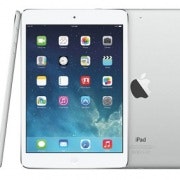Microsoft's Nokia stranglehold
Claims of a Faustian pact between Nokia and Microsoft were given credence by the launch of Nokia's Lumia 920 in New York. Rarely have I seen such a locked-down product launch, with Nokia limited to only discussing its own Windows Phone 8 features. Even then Nokia did a poor job, harping on about the camera while LTE mobile broadband, Near Field Communications and wireless charging took a back seat.
Nokia finally has a decent smartphone platform behind it, one worth talking about, yet new CEO Stephen Elop is still stuck in the age of pitching camera phones. Of course it didn't help that Nokia seemed forbidden to talk about much else, even at its own product launch.
Sticking to a tight script
Journalists from around the world were given tightly controlled hands-on access to a handful of Lumia 920 and 820 handsets but were forbidden from dipping into the settings or even flicking through the list of installed applications. Microsoft's input to the event, apart from paying half the bill, was restricted to a few onstage platitudes from CEO Steve Ballmer -- whose time on stage with Nokia head Stephen Elop was little more than a photo opportunity. And perhaps a quick reunion, as Elop previously worked for Microsoft. Not long after moving to Nokia, Elop declared Symbian a "burning platform" and insisted that the company throw its lot in with Microsoft instead.
Elop might be his own man, but Microsoft is clearly calling the shots. Microsoft refused to speak to the media at all at the Lumia 920 launch and the most common phrase from Nokia and Microsoft product demonstrators was a polite but firm "we're not talking about that today".
My chat with Thom Brenner -- Nokia vice president of applications, location and commerce -- painfully stuck to the script and he declined to discuss anything which hadn't already been covered. Behind the scenes Microsoft had obviously been flexing its muscle, as passionate local developers weren't even prepared to discuss Windows Phone 8 off the record.
The pressure was on Nokia to deliver something special with the first official launch of a Windows Phone 8 device, especially after Samsung decided to give everyone a glimpse of its Windows Phone 8 handsets and tablets in Berlin last week. Clearly the handset makers are scrambling for a little attention before iPhone 5 hysteria goes into overdrive next week. While Nokia was showing off its Windows Phone 8 handsets in a trendy warehouse on 22rd Street, over on Broadway competitor Motorola was showing off its latest Razr handsets running Android -- the first since Motorola was acquired by Google.
Stuck in the rut
The world is changing but the Lumia 920 launch made it clear that Nokia is still stuck in the camera phone age. Back in 2010, Nokia Australia's managing director Emile Baak was roasted by journalists at the Australian launch of the Symbian-powered N8. He continually insisted the N8 was a "smartphone" to compete with Apple and Android but he only focused on the phone's mutlimedia features.
Of course the problem at the time was that Nokia was stuck with its lame duck Symbian^3 update which tarnished what should have been a great phone. Now Nokia has the impressive Windows Phone 8 behind it, yet it's still living in the camera phone world. If the camera really was the most important feature in a smartphone, surely Nokia would have knocked Apple off its perch a long time ago.
When it comes to fighting Apple, it seems both Microsoft and Google have decided the best approach is to work closer than ever with the hardware makers to deliver tightly integrated devices. Yet they went about it very different ways. Google whipped out the cheque book and bought up Motorola Mobility lock, stock and barrel (in part for its patent library). You might think that Motorola would be given special treatment as an Android vendor, but Motorola Mobiity's senior vice president of product management, Rick Osterloh, insists there's a rugged firewall between the two. This is understandable because Google can't really afford to play favourites and burn its other hardware partners.
Then there's the awkward relationship between Microsoft and Nokia, two technology giants which were looking somewhat past their prime and needed to reinvent themselves. Their "strategic partnership" for Nokia abandon Symbian for Windows Phone 8 reportedly put more than one billion dollars into Nokia's coffers. That's a lot of pickled herring. But Microsoft got quite a few things in return. One was to associate Windows Phone 7 with one the biggest names in mobile phones, to lend its fledgling mobile OS some credibility. As an added benefit it also ensured that any potential deal between Nokia and Android was off the table. Another benefit was access to Nokia's mapping and sat-nav expertise, which is now baked into Windows Phone 8. A final benefit, and perhaps the most important, was to kill off Nokia's plans for the Linux-based MeeGo platform, which was destined for high-end smartphones.
Friends with benefits
So Microsoft gained an ally, picked up some impressive technology and killed a potential rival all in the one stroke -- all by pulling Nokia's strings without having to buy it out. At least Motorola got Google to put a ring on it. Microsoft and Nokia are simply friends with benefits, but the Lumia 920 launch shows it's not a relationship of give and take.
In theory Microsoft can afford for Windows Phone 8 to flop, at least in the short-term, as the cash cows of Windows and Office have always bankrolled its crazy schemes. But Nokia doesn't have that luxury. The 12 month lag while Nokia retooled for Windows Phone 7 was a dark time for the Finnish phone giant, but there was light at the end of the tunnel. If that light goes out, Nokia may never find its way in the smartphone market again.
















